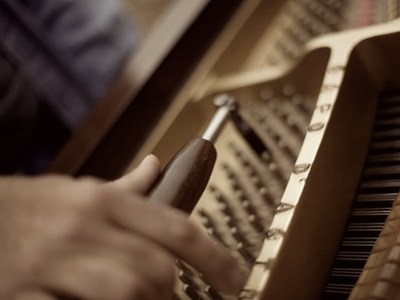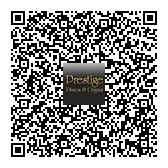Piano Tuning: A Brief Overview and Guide

Tuning is the single most essential aspect in piano maintenance. Tuning involves making acute adjustments to the tension in the strings, in order to correctly align the periods between their tones until the instrument is in tune. The piano tuner must physically change and move nearly 209 tuning pins. These pins alter the tension of each wire attached to the pin. Depending on the direction in which the pin is moved, the sound will become either higher or lower. Each note is placed so that it contributes to an overall formula, determining the beat-rates most pleasing to the human ear.
If a piano is not tuned regularly, permanent damage may result. In turn, the overall lifespan and value of your piano will decrease. Additionally, due to the change in temperature throughout the year, tuning is essential to keeping your piano sounding good.
What Makes Tuning Necessary
Pianos can go out of tune for many reasons. They are incredibly sensitive to changes in the climate, temperature and humidity.
-
The humidity during the summer months can cause the moisture content of the soundboard to increase. This will cause the pitch from the strings to rise, due to the fact that the tension is increased because of the engorged soundboard.
-
During the winter, the opposite is true, due to the lack of humidity.
-
Frequent or hard playing can also cause the piano to lose its tune.
-
Hard playing causes the piano hammers to contact the strings directly, and too much pressure can loosen the strings.
-
It is also possible for pin blocks to become weakened over time. When this happens, they will lose the ability to hold the necessary amount of torque to prevent the pins from slipping.
Other Processes
In addition to regular tuning, every five years a piano needs to be regulated. Regulation is the process of enhancing the piano action to allow the best response to the touch of the keys. After regulation, a performer has more control and power over the performance of the piano.
Occasionally a piano will also need to be voiced. This process involves changing the timbre and character of the piano, to make it more enjoyable to both performer and listener. Changing the voice of a piano aligns the action with the strings, as well as the shaping of the hammer.
Tuning a piano is a complicated and nuanced process, and learning how to do it is an important process in becoming a more complete piano player. However, if you have no experience tuning a piano it is recommended that you contact a professional to do it for you.
Prestige Pianos & Organs is Melbourne's Oldest YAMAHA Piano Dealer and is the home of fine musical instruments, providing musical solutions since 1973.
At Prestige Pianos & Organs we specialise in providing a wide selection of new and used instruments. Whether you're looking for an acoustic grand piano to enhance your home or a keyboard for performances with a band we have a product that will fit your needs.








